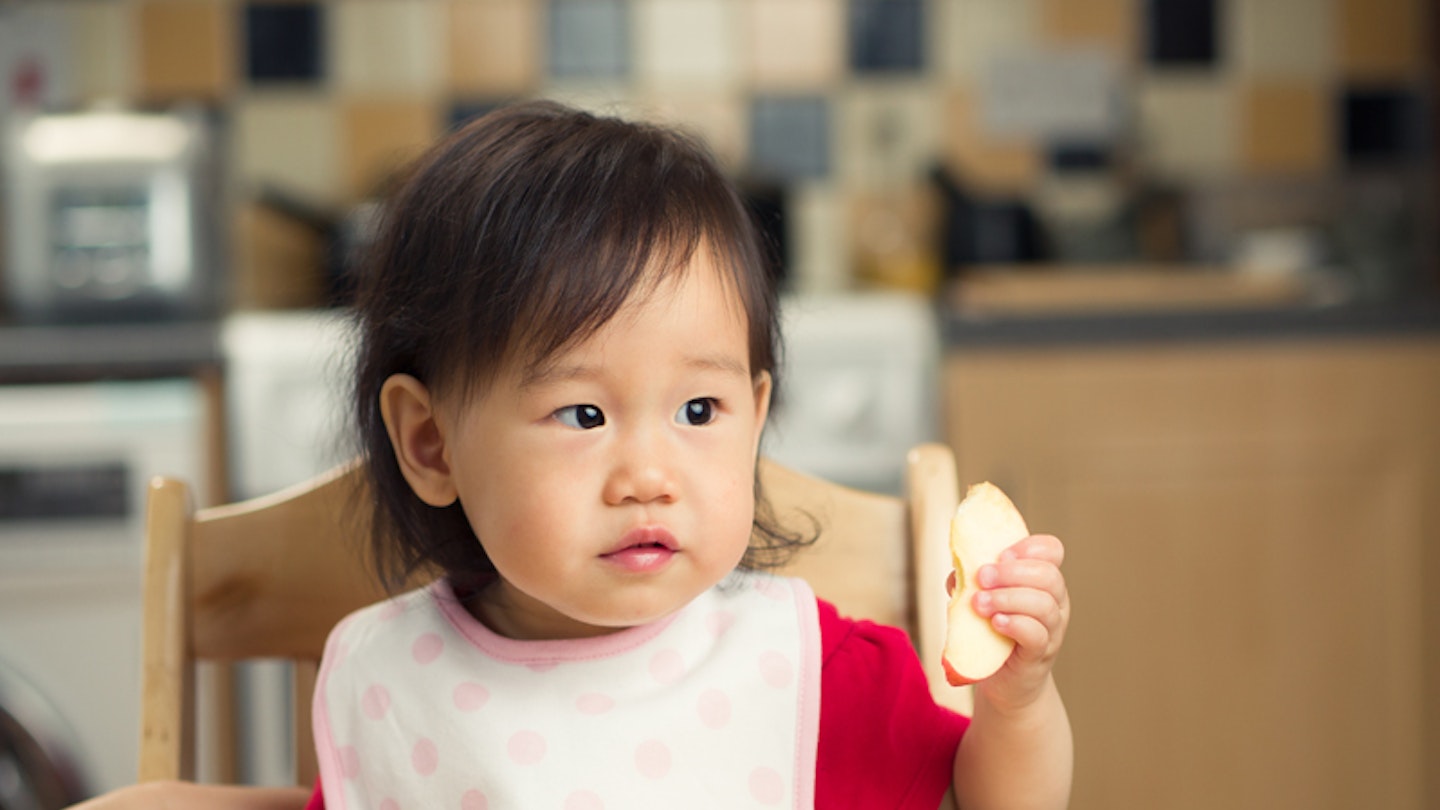M&B's resident weaning advisor Annabel Karmel explains how to navigate weaning when dealing with dietary requirements...
Weaningis an important (and exciting!) milestone for parents but sadly it’s not always as smooth-sailing as you’d originally hoped. Add allergies into the mix or trying to raise your baby on a ‘free-from’ diet and you’re suddenly faced with a whole host of additional weaning worries.
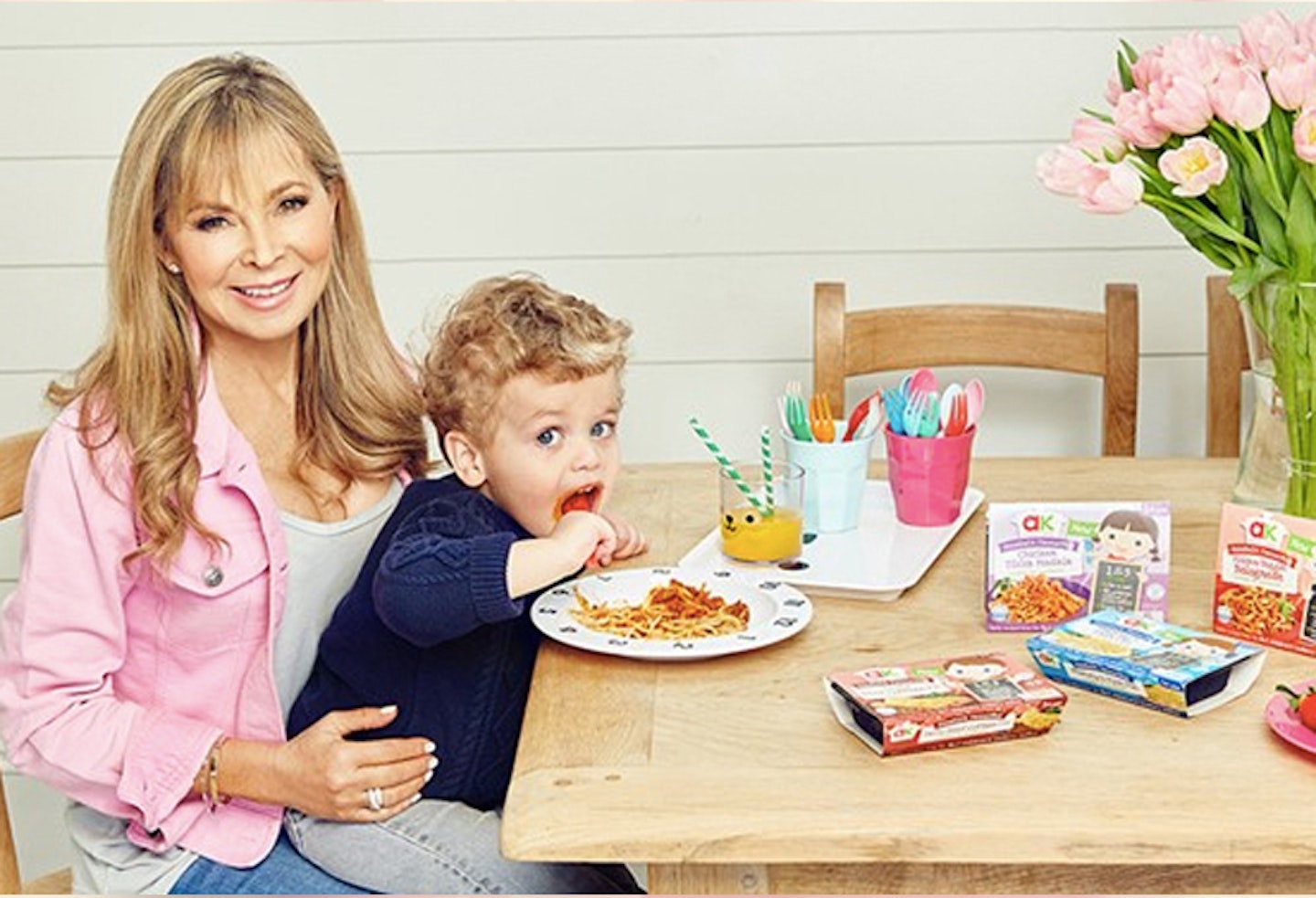
Whether you have a baby with an allergy or if you’re simply looking to introduce your baby to your family’s own foodie choices then here are some top tips to create healthy, balanced meals to wean your baby on. Whatever your situation, it’s all about making sure your baby is getting the right amount of nutrients for their growth and development.
Allergies
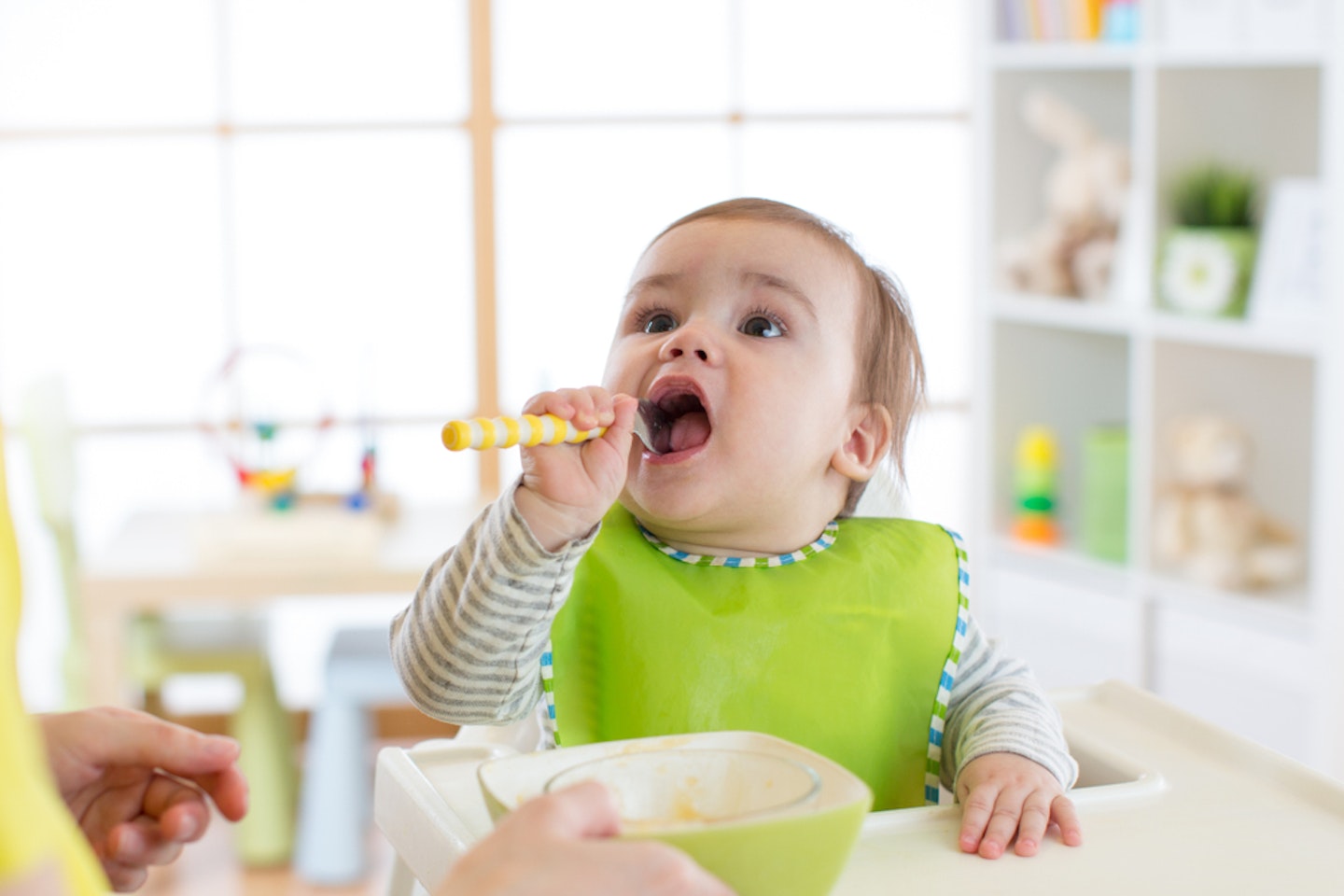
Childhood food allergies are on the increase, so it’s natural that some parents might be nervous about introducing foods that could cause problems. But it’s good to note that the actual incidence of food allergy in babies is very small - about 5-6%. And the good news is that babies and children tend to grow out of allergies like cow’s milkor egg allergy by the age of 2 or 3.
Food allergies are more common among babies and children from families with a history of allergies and babies who suffer from eczema are at a particularly high risk of suffering from food allergies.
If your baby is at high risk e.g. has bad eczema, then it would be sensible to get an allergy test done just before weaning to help guide a safe introduction of common allergenic foods such as milk, egg and peanut.
Weaning with allergies – when to start?
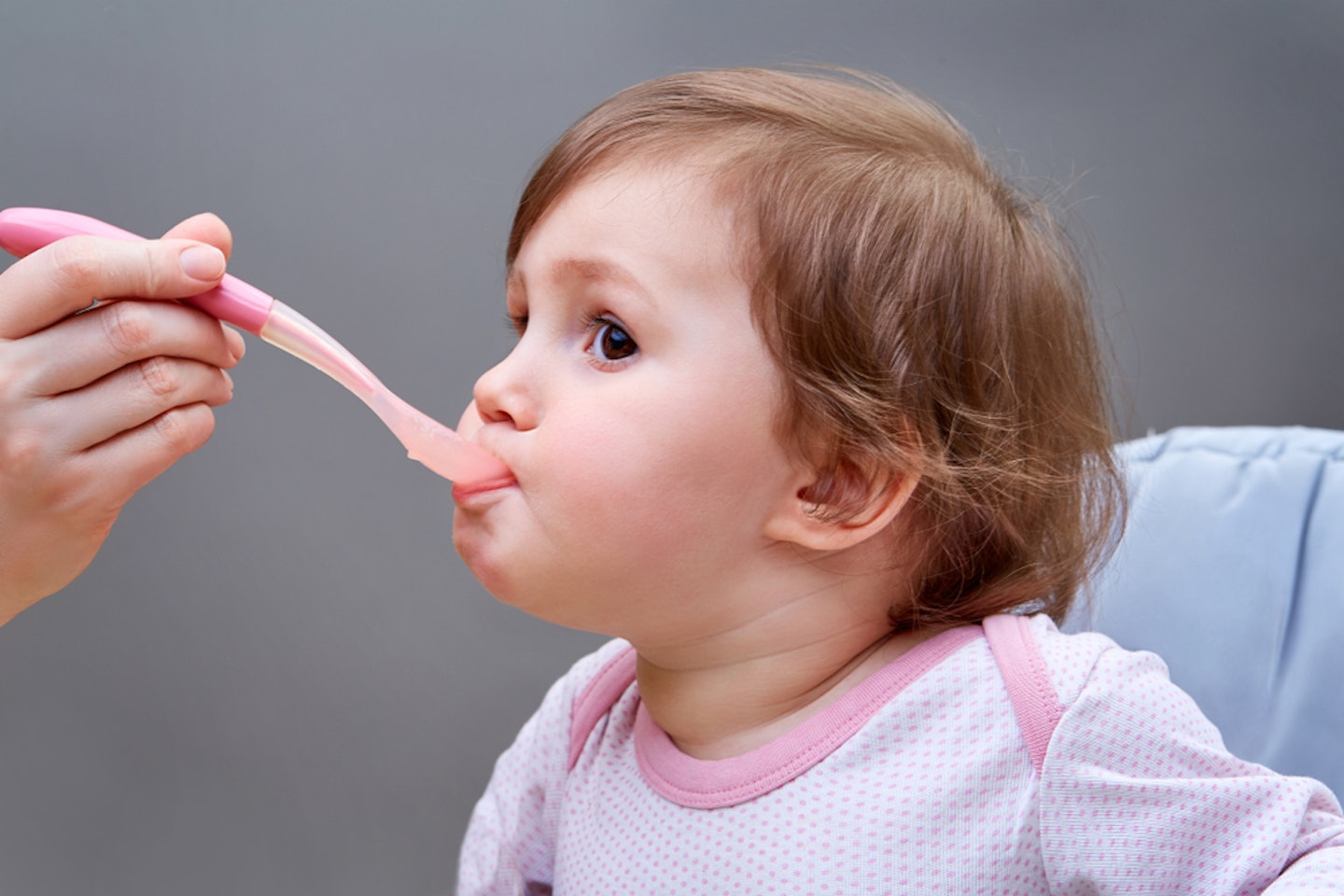
The general rule is that babies should be weaned from around six months old. However, some parents feel that their babies are ready before then. If this is the case with your baby, you can speak to your Midwife or healthcare professional on possibly introducing solids slightly earlier (but not before the age of seventeen weeks, as their gastrointestinal function won’t have fully matured). Every baby is different, and in families with a history of food allergy, hay fever, eczema or asthma, it’s best to try to exclusively breastfeed for the first six months.
Allergenic foods to consider
The most common cause of immediate type of food allergy are egg, milk, nuts, fish, sesame and shellfish. Wheat, kiwi and soy are also important allergens. With delayed allergies, milk and soy are the most common causes. It is worth being aware of these common top allergic foods when you are weaning your baby and introducing them to new foods.
Introducing new foods
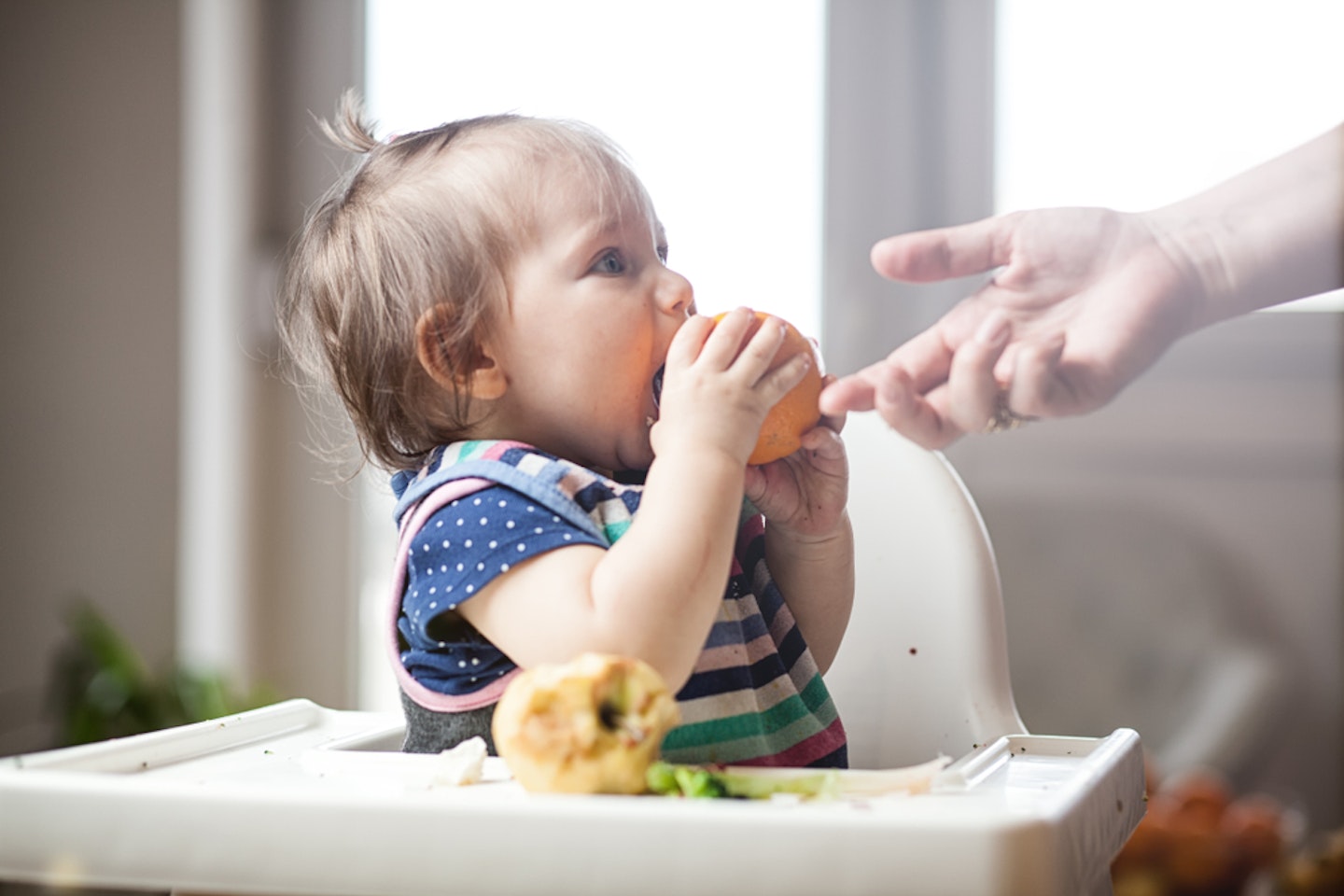
New advice is not to withhold foods like eggs from six months. Giving these foods early on in their weaning journey helps to desensitise babies.
An example of this is in Israel where young children regularly eat Bamba – a snack which contains peanuts, and over there they actually have a very low case of peanut allergies. The best thing you can do is to introduce new foods one by one, leaving a day or two between each one, to see if there’s a reaction.
Free-From Weaning
Dairy-free
Cow’s milk allergy is one of the most common childhood food allergies. It is estimated to affect between 2% and 7.5% of babies under one, though most children grow out of it by the age of five.
It typically develops when cows’ milk is first introduced to your baby’s diet either in formula or when you start to wean your baby. More rarely, it can affect babies who are exclusively breastfeeding, because of cows’ milk from the mother’s diet passing on to the baby through breast milk.
Milk substitute formulas

For the first year, ideally breast milk is given to infants but where this isn’t possible, formula milk is given as ordinary cow’s milk does not provide adequate iron and other nutrients. However, infant formula is made from cow’s milk so if your baby has a cow’s milk allergy this means they will need a special hypoallergenic formula.
In the first year, babies will need up to 600ml of hypoallergenic formula a day to meet their nutritional requirements. The Department of Health recommends giving a supplement of vitamin D and A to all children over 6 months who are given breast milk as their main milk source.
I get asked more and more for dairy-free recipes and the good news is it is easier than ever to accommodate ‘dairy-free’ into your baby’s weaning routine. Making your own purees and finger foods means you are in complete control of what you are giving your baby. In my Weaning and Baby-Led Weaning Recipe Book I have included lots of dairy-free recipes and it’s easier than ever to make your favourite recipes dairy-free by substituting Cheddar cheese and Parmesan for a dairy-free alternative for example.
There are also lots of dairy-free alternatives to cow’s milk made from soy, coconut, oat and almond. These alternatives are very much having their ‘superfood’ moment. Now widely available they are a good source of calcium and vitamin E.
Gluten-free
Going gluten-free can be a tricky one to manage as you need to be careful of hidden gluten in food like soups, sauces, fish fingers, chicken nuggets and salad dressings.
You can substitute wheat free and gluten free flours for plain flour in many of my recipes.
My advice, however, is that it is generally best to substitute where there is a low ratio of flour to other ingredients as then you are less reliant on gluten to hold the mixture together. Top tip - Always grease and line cake tins well – gluten-free baked products tend to be more fragile.
Here are some of my other gluten-free recipe tips:
-
Crushed cornflakes or Rice Krispies make a good coating for homemade fish fingers or chicken nuggets
-
Rice flour, polenta, buckwheat flour and potato flour are good flour alternatives
-
Rice noodles make an excellent substitute to pasta
-
Substitute quinoa or rice as a ‘side’ instead of bread
I would always recommend going to see your GP, Healthcare Professional or dietician to discuss any allergy concerns and to ensure any imbalances are addressed. And, whether you’ve chosen to remove certain foods from your baby’s diet on health, religious, environmental, or ethical grounds, or their diet has to be restricted for other reasons, it’s important to seek professional advice and make sure you make up for any shortfalls to guarantee they are still getting all the essential vitamins and minerals they need. Iron, Fats, Protein, Essential Fatty Acids, Carbohydrates, Zinc and Vitamin D are all essential to include in their diet from 6 months.
Annabel’s new book Weaning (DK £12.99 www.dk.com) includes everything you need to know about traditional and baby-led weaning, advice on when to start, critical nutrients, how to cater for allergies and intolerances, and more than 60 healthy and delicious recipes to delight your little one. Available from all good bookstores. www.annabelkarmel.com
